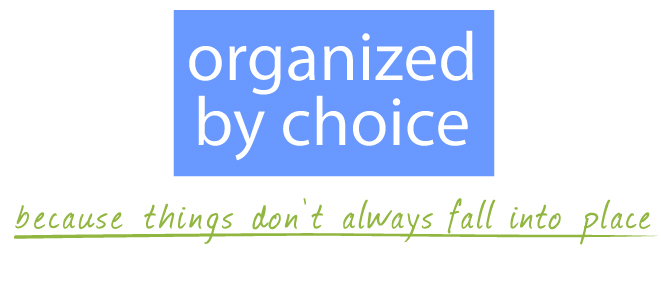This morning I got word that my husband’s last uncle passed away. Two days ago, we attended the Celebration of Life service for a 59-year-old man we did ministry with. Last month a good friend’s father died. Ecclesiastes 7:2 says, “It is better to go to a house of mourning than to go to a house of feasting, for death is the destiny of everyone; the living should take this to heart.”
Death stops us in our tracks—literally and figuratively. Literally when it is our turn, we no longer walk with those on earth. Figuratively, when it happens to those around us it causes us pause and, at least for a moment, we take to heart our own mortality.
Why should we take this to heart and what does it have to do with being organized? Sandra Felton of Messies Anonymous said, “Organizing is not nearly as important as many other things in life, but what it delivers is often priceless.”
For the young widow whose husband handled the bills and paperwork, being left with a simple system and organized files is priceless. For the adult children of deceased parents, inheriting a home that does not take hours and hours of sorting, trashing, and donating is priceless.
Taking to heart our own mortality gives rise to an assessment of priorities.When leaving a funeral, we’re not hoping to spend more time watching sitcoms before it’s our time to go. We may be thinking of things we haven’t yet done—bucket list, creating a will/trust, gathering important documents, or purging excess belongings. We may be thinking of relationships to invest in or restore.
What do you want in life? That’s an important question considering we all have an expiration date. In Organizing for the Creative Person authors Dorothy Lehmkuhl and Dolores Cotter Lamping say, “Good time management means doing activities you regard as important to achieving what you want in life.”
Unfortunately, when we consider something important, it doesn’t automagically happen. Here are four Timely Tips to transform your good intentions to priceless reality.
Timely Tips
Photo by RODNAE Productions: (pexels.com)
Identify one thing that is of high importance to you. Create a specific goal based on that value. For instance, maybe preserving memories is of high importance to you. Your goal may be to organize your photos and create a photo book for your child, vacation, or year. Or maybe your goal is creating a video of your grandparents sharing memories.
Break down your goal into steps. In this scenario, if you’re dealing with hard copy photos, your first step would be to gather your photos, then purge and sort in categories based on your end goal. If your goal is a video, your first step may be creating a list of questions for your grandparents to respond to.
Schedule specific time on your calendar to work on each identified step. You may want to schedule two hours every Thursday night, or an hour once a week on your day off. Whatever it is, write it on your calendar and protect it like you would a doctor or repairman appointment. Don’t bounce around to other projects during your scheduled sessions and stay on track with the order of steps you’ve outlined.
Celebrate each step’s completion and designate a special reward for completing the goal.
When extra help is needed
Some goals require additional help. If yours is restoring a relationship, some counseling may be in order. If yours is creating a will or trust, you’ll want to connect with an attorney. If you’re sorting and purging your entire house, a professional organizer can decrease the overwhelm and guide the process.
If yours is preparing for what comes after that final goodbye, I recommend reading the Gospel of John in the Bible. “For God so loved the world that He gave His one and only Son, that whoever believes in Him shall not perish but have eternal life.” John 3:16
wise words
Time is not refundable. Use it with intention. --Madi Parkinson


